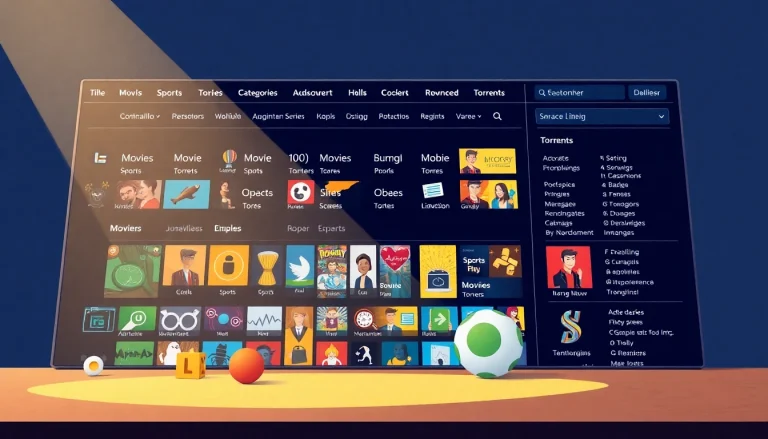
1. Defining God: A Multidimensional Concept
Understanding God is a complex endeavor that transcends individual belief systems and cultural norms. The word “God” invokes varying connotations across civilizations and religious traditions. While some might see God as a singular, omnipotent entity, others recognize a pantheon of deities. This broad spectrum of interpretations warrants a comprehensive exploration. God serves not only as a creator but as a profound embodiment of diverse human experiences and aspirations.
1.1 The Nature of God in Monotheism
In monotheistic traditions, such as Christianity, Judaism, and Islam, God is typically characterized as the supreme being—uncreated, eternal, and wholly transcendent. These faiths converge on the understanding of God as the ultimate source of all existence, responsible for the creation and sustenance of the universe. Attributes such as omnipotence, omniscience, and omnipresence are often assigned, framing God as both personal and abstract. This duality allows for a personal relationship between believers and God while simultaneously recognizing divine power as beyond human comprehension.
1.2 Comparing God in Polytheistic Religions
In contrast, polytheistic religions encompass a variety of gods, each governing different aspects of life and nature. For example, Ancient Greek religion featured gods like Zeus, who ruled the sky, while Poseidon governed the sea. Even within these frameworks, certain transcendental characteristics emerge that are reminiscent of monotheistic God concepts. Deities may exhibit traits that reflect human emotions or levels of power, but often they are seen as more capricious, directly influencing the daily lives of their worshippers. This dynamic shapes rituals and devotional practices distinctly different from monotheistic practices, reflecting a more immediate and tangible connection to the divine.
1.3 Common Attributes of God Across Cultures
Despite the diversity of beliefs, numerous attributes are commonly ascribed to the concept of God, transcending cultural and religious boundaries. Core attributes like wisdom, power, and benevolence resonate across civilizations. For instance, many cultures envision their deities as protectors, guides, and sources of moral authority. Furthermore, concepts such as justice and mercy often appear in sacred texts, showcasing God’s role in establishing ethical frameworks for human behavior. This universality illustrates the underlying human yearning for understanding and connection with a higher power.
2. Exploring God in Christianity
Christianity, representing one of the largest faiths worldwide, presents a unique interpretation of God rooted in scripture, tradition, and theological development. Central to this understanding is the idea of God’s personal relationship with humanity.
2.1 The Trinity: Father, Son, and Holy Spirit
One of the most distinctive aspects of Christianity is the doctrine of the Trinity, which posits that God exists as three persons in one essence: the Father, the Son (Jesus Christ), and the Holy Spirit. This concept reflects a relational understanding of God, appealing to believers as it fosters a personal connection through the different personas of the divine. The Father is characterized as the creator, the Son as the redeemer, and the Holy Spirit as the active presence in the world, guiding and comforting believers.
2.2 Names and Titles of God in the Bible
The Bible presents multifaceted names and titles that delineate various attributes and roles of God. For example, “Elohim” denotes God’s might and supremacy, while “Yahweh” signifies a personal and covenantal aspect, emphasizing God’s desire for relationship with humanity. Each name reflects a layer of God’s character, inviting believers to explore the depth of their faith and the nuances of divine interaction in their lives.
2.3 God’s Love and Compassion in Christian Teachings
God’s love is a cornerstone of Christian teaching, emphasized throughout the scriptures. The New Testament articulates this through the actions and teachings of Jesus, encapsulated in the commandment to love one’s neighbor as oneself. This paradigm of love extends to the universality of God’s compassion, exemplified in parables such as the Good Samaritan, which stress the importance of empathy and support for others. The belief that God is love invites individuals to reflect this love in their interactions, reshaping societal norms and encouraging inclusive communities.
3. Philosophical Perspectives on God
Philosophical inquiries into the concept of God span centuries, reflecting humanity’s profound quest for meaning and understanding. Various arguments and dilemmas arise within this discourse, shaping individual beliefs and societal structures.
3.1 Arguments for God’s Existence
Among the most discussed philosophical arguments are the Cosmological, Teleological, and Moral arguments. The Cosmological argument posits that everything that exists must have a cause, leading to the conclusion of an uncaused cause—what many recognize as God. The Teleological argument observes the complexity of the universe, advocating for an intelligent designer due to the intricacies of nature. Lastly, the Moral argument suggests that the existence of objective moral values points to a moral lawgiver. Each of these frameworks invites believers and skeptics alike to engage critically with the nature of existence and divine influence.
3.2 The Problem of Evil and Suffering
One of the most significant challenges to belief in God is the problem of evil and suffering. This dilemma provokes questions like: If God is all-powerful and good, why does evil exist in the world? Various theodicies have emerged in response, attempting to reconcile the presence of suffering with a benevolent deity. For instance, some argue that free will is a gift that entails the potential for moral wrongdoing, while others emphasize the role of suffering in spiritual growth and character development. This discussion continues to engage theologians and philosophers, impacting faith and practice.
3.3 God and Human Free Will
The interplay between divine sovereignty and human free will remains a contentious issue. The question of whether God foreordains all events or grants human beings autonomy to make choices carries profound implications for individual responsibility and moral agency. Numerous philosophical and theological perspectives explore this relationship, with some advocating for compatibilism, which posits that free will and divine intervention are not mutually exclusive. Understanding this dynamic provides insight into the complex nature of faith and the human condition.
4. The Influence of God in Society
The concept of God profoundly influences societal norms, ethics, and cultural practices. Throughout history, both the proponents and detractors of faith have shaped civilizations, often reflecting the principles believed to emanate from the divine.
4.1 God’s Role in Morality and Ethics
The foundational role of God in defining morality cannot be overstated. Many moral frameworks, especially in Western philosophy, are derived from religious teachings. The Ten Commandments, for example, serve as a moral guide in Judaism and Christianity, providing directives that shape ethical conduct and social justice. Furthermore, discussions around human rights often invoke theological arguments, ensuring that the discourse includes considerations of dignity, worth, and moral agency derived from divine perspective.
4.2 Religious Practices Reflecting Beliefs about God
Religious practices—ranging from daily prayers and rituals to large-scale festivals—embody the beliefs individuals hold about God. These practices often allow followers to express reverence, seek guidance, and foster community. The diversity of religious expressions highlights various interpretations of the divine, showcasing the richness of human spirituality. For instance, in Hinduism, puja (worship) ceremonies can involve rituals that vary vastly in complexity but ultimately serve to connect worshippers with their understanding of God.
4.3 Interfaith Dialogues on the Concept of God
In an increasingly pluralistic world, interfaith dialogues play a crucial role in bridging gaps between differing conceptions of God. Such discussions facilitate understanding, reduce conflict and promote coexistence. Through shared experiences and narratives, participants learn about varying doctrines and practices, helping to foster mutual respect and tolerance. These dialogues often reveal common values and ethical principles, providing a foundation for collaborative efforts to address societal challenges.
5. Modern Interpretations of God
The contemporary landscape of spirituality and belief has evolved, prompting new interpretations of God that reflect both tradition and modernity. As society encounters rapid change, the notion of God adapts, resonating with diverse populations.
5.1 God in Contemporary Spirituality
Contemporary spirituality often navigates beyond conventional religious boundaries, with various movements emphasizing personal experience and inner transformation. Ideas such as divine immanence—the belief that God is present within creation—have gained traction, enabling individuals to find spirituality in nature, relationships, or personal growth. This shift toward subjective experiences allows a broader audience to engage with the divine, often resulting in a more individualized connection with God.
5.2 Artistic Representations of God Across Mediums
Across cultures and eras, God has been depicted in countless artistic forms—from ancient sculptures and religious paintings to modern digital media. These representations both reflect and shape societal perceptions of the divine. Artists often grapple with attempting to capture God’s essence, leading to innovative interpretations and various styles that resonate with contemporary audiences. For instance, modern art often challenges traditional depictions of God, aiming to create provocative discussions on faith and existence.
5.3 The Future of Belief in God in a Changing World
As humanity advances, the future of belief in God is subject to ongoing transformation. The rise of secularism, coupled with advancements in science and technology, presents challenges and opportunities for religious thought. Debates over God’s role in ethics, existence, and society continue to evolve, and understanding these dynamics is crucial for navigating the future landscape of belief. The challenge lies in maintaining relevance while fostering meaningful connections between the divine and contemporary society.






